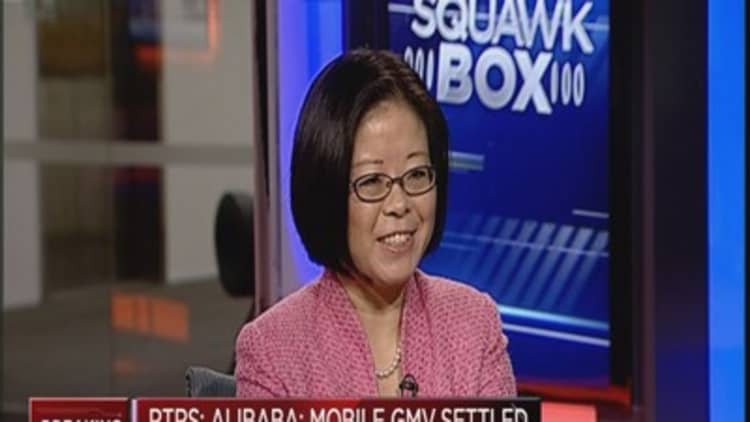
China, the greatest economic story of the last 30 years. But fears of a hard landing from years of breakneck growth have sparked fears that the country has little planned to help soften any economic blows.
The global financial crash of 2008 has dented external demand for China's goods and economists worry about high debt levels in the corporate sector.
But is change just around the corner? Can China really rebalance its economy to be more consumer-led and open its financial markets to the world? And will optimism overcome the pessimism that has roiled global asset markets this year.
'Reforms are happening'
"Reforms are happening," Wang Tao, chief China economist at UBS, told CNBC at a roundtable meeting in London on Tuesday.
The Swiss bank isn't the most bullish on the country, predicting 6.2 percent growth next year and 5.8 percent in 2017. But, Wang Tao is adamant that it is making changes, will "not fall off a cliff" and will find a tolerance to a "gradual slowdown."
Analysts have raised several concerns about the Chinese economy: The country is hooked on debt, the shadow banking sector has exploded. So-called "zombie" companies are yet to be weeded out. The property market is showing signs of a bubble and major industries are slowing down.
"Allowing more banks to default, will be a sign that things are moving on and markets are improving," Wang said, adding that China should "go green" and "go global."
'The potential is there'
Bert Hofman, country director of China at the World Bank, argues that the world economy is not helping due to decreasing demand and highlights that Chinese reforms were actually underway before the 2008 crash put a cork in its progress.
"The answer (for China) is continued reforms," he told CNBC at the same roundtable event on Tuesday. "(The government needs) financial sector reforms, it needs to make the financial sector more agile."
Hofman also spoke about possible privatization of state-run enterprises, which might seem a little contradictory for a communist-led government. Nontheless, he said that these companies need to become more profitable.
"The potential is there," he said. "This was underway in the early 2000s. The banks did very well, with lots of loans to the private sector. Then came the global crash."
Both were optimistic that China would be able to implement these reforms and would refrain from "massive stimulus" to prop up the slowing of its economy. UBS predict that the yuan could depreciate 5 percent against the dollar next year but will see a long-term trend higher as more and more central banks diversify into the currency.




